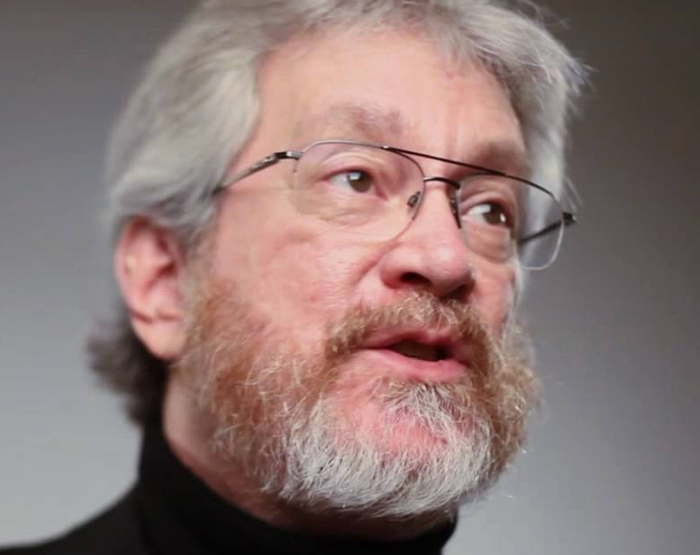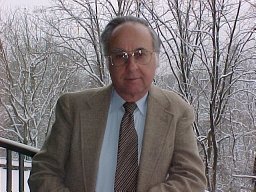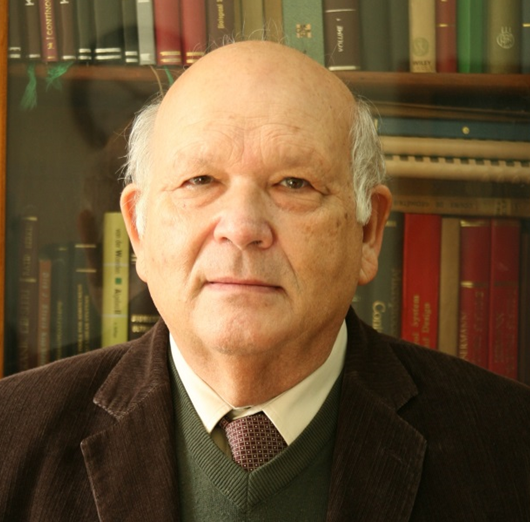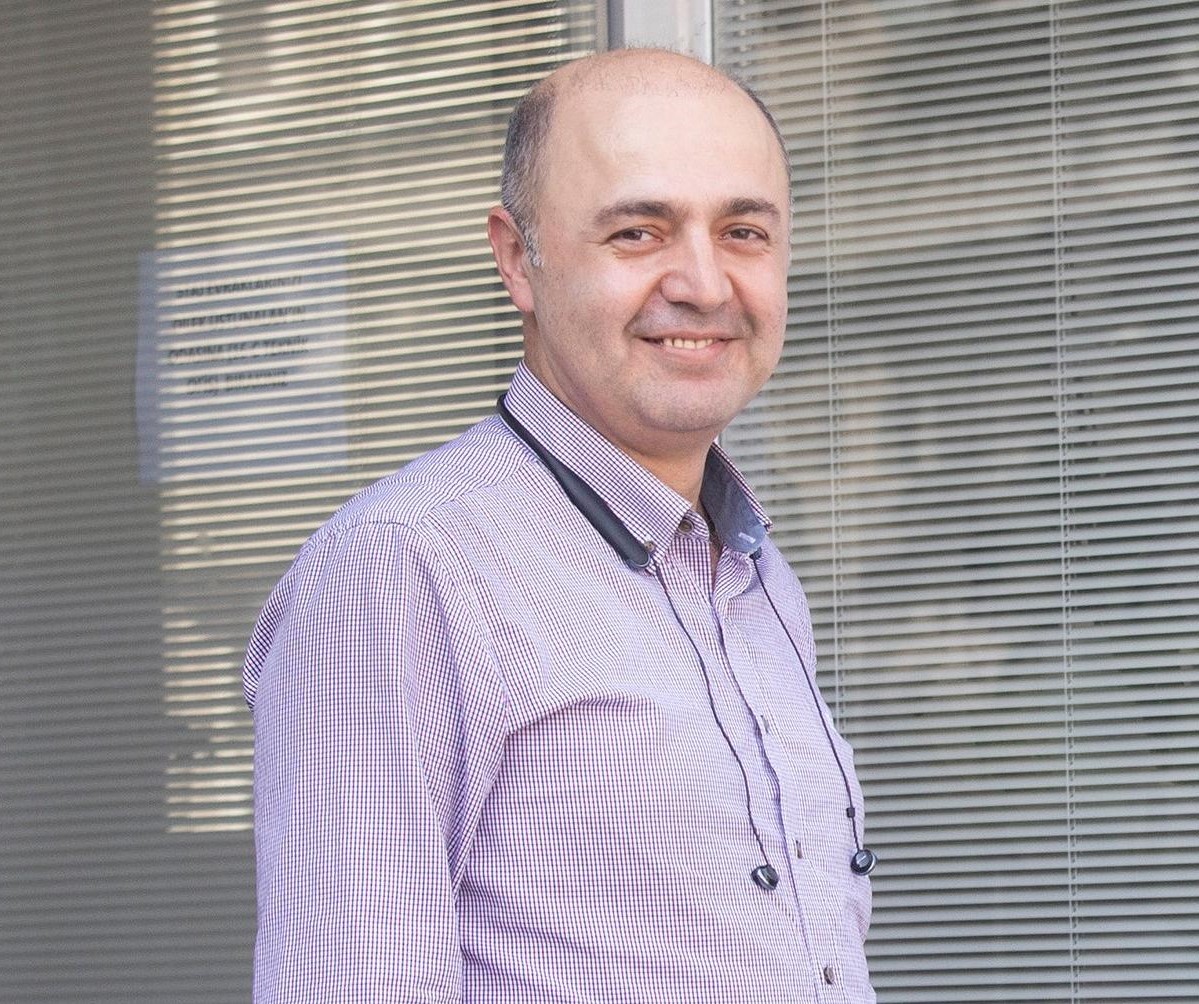KEYNOTE SPEAKERS

Alex 'Sandy' Pentland
(Re)building a new economy
(Re)building a new economy
Abstract
The ability to balance the world's flows of data, money, goods, and intellectual property depends on creating a balance of stakeholders.
By leveraging cooperative worker and citizen organizations we can change the current situation and create a sustainable digital economy that serves the many and not just the few. If the 100 million U.S. consumers who are currently members of local credit unions and coops could also control their data, they would be a force to be reckoned with. The same potential for community organizations to balance today's data monoliths exists in most countries around the world.
The key challenge for such a transformation is to ensure safety and ownership rights while still ensuring global interoperability. Data is a new primary means of production, like capital, labor, or land, but it is so new that there are no institutions to guarantee that everyone benefits from data use. There are efforts beginning in many nations to regulate crypto ("Web 3.0") but these efforts do not address the larger problems of global interoperability, safety, and inclusiveness.
This suggests that a new "Digital Bretton Woods" standards effort is required, in order to forge standards and governance of Web3 platforms covering both private efforts like Etherium or Libra and national platforms such as those developed by China, Singapore, and Switzerland. Unlike the World War II Bretton Woods effort, such coordination must not only be centered around banking and finance but must be focused on developing digital technical standards for all sorts of transactions, including communications, trade, finance, and government, and must also support sustainability and other social factors. Creation and maintenance of such a standards body need not be expensive or large, as illustrated by the governance oversight platforms developed for the Internet and the World Wide Web.
Biography
Professor Alex 'Sandy' Pentland directs MIT Connection Science, an MIT-wide initiative, and previously helped create and direct the MIT Media Lab and the Media Lab Asia in India. He is one of the most-cited computational scientists in the world, and Forbes declared him one of the "7 most powerful data scientists in the world" along with Google founders and the Chief Technical Officer of the United States. He is on the Board of the UN Foundations' Global Partnership for Sustainable Development Data, co-led the World Economic Forum discussion in Davos that led to the EU privacy regulation GDPR, and was one of the UN Secretary General's "Data Revolutionaries" helping to forge the transparency and accountability mechanisms in the UN's Sustainable Development Goals. He has received numerous awards and prizes such as the McKinsey Award from Harvard Business Review, the 40th Anniversary of the Internet from DARPA, and the Brandeis Award for work in privacy. He is a member of advisory boards for the UN Secretary General, the UN Foundation, Consumers Union, and OECD, and formerly the American Bar Association, Google, AT&T, and Nissan. He is a member of the U.S. National Academy of Engineering and a council member within the World Economic Forum. Companies co-founded or incubated by Pentland’s lab include the largest rural health care service delivery system in the world , the news and advertising arm of Alibaba, the identity authentication technology that powers India’s digital identity system Aadahar, and rural service outlets for India’s largest payment solutions provider. Over the years Sandy has advised more than 80 PhD students. Almost half are now tenured faculty at leading institutions, with another one-quarter leading industry research groups and a final quarter founders of their own companies. Together Sandy and his students have pioneered computational social science, organizational engineering, wearable computing (Google Glass), image understanding, and modern biometrics. His most recent books are Building the New Economy and Trusted Data, both published by MIT Press, Social Physics, published by Penguin Press, and Honest Signals, published by MIT Press.

Leon Cohen
Nonstationary noise and random differential equations in phase space
Nonstationary noise and random differential equations in phase space
Abstract
Non-stationary noise is common in nature, but the vast majority of noise analyses have dealt with stationary noise. Nevertheless, even the simplest noises, the Wiener or Langevin processes, are non-stationary. We present an approach to study non-stationary noise that explicitly addresses the non-stationary aspects. Our approach is to transform the governing process, for example, the random differential equation, into an equation in phase space. We show that an immense simplification occurs both conceptually and practically when non-stationary noise is analyzed in the phase space of time and frequency. Using this method, we have addressed several problems, including the Wiener and Langevin processes, where we obtain the exact time-dependent evolution for all time.
Biography
Leon Cohen (Life Fellow, IEEE) was born in Barcelona, Spain. He received the B.S. degree from the City College in 1962 and the Ph.D. degree from Yale University, New Haven, CT, USA, in 1966.,He is currently a Professor of physics with the City University of New York, New York, NY, USA. He has contributed to the fields of astronomy, quantum mechanics, signal analysis, and mathematical physics.

Atilla Bir
Engineering History
Engineering History
Abstract
Realizing the rapid change in the world before the industrial revolution, the Ottomans started education-oriented reforms, first in the military and then in the civil field, starting from the end of the 18th century. The first and most successful of these reforms showed itself in the field of engineering. These institutions, which form the historical foundations of our successful technical universities today, also reflect the history of modernization in Turkey. Despite the number of studies on naval and land military engineering education, those in civil engineering are very few. Despite all this, there are parts of our engineering history that are still not fully elucidated or have historical confusion. The path of our engineering history, whether military or civilian, can be found in Istanbul Technical University, which is one of the largest universities providing engineering education in Turkey today.
Biography
Atilla Bir was born in 1941 in Izmir. He completed his secondary education in Izmir and Istanbul and graduated from Saint Joseph High School in 1959. In 1960, he began studying at the Electrical Engineering Faculty of the Technical University of Karlsruhe (TH-Karlsruhe) in Germany and graduated in 1966 as an Electrical Engineer in the field of Weak Current. He worked as a control engineer for one year at the Siemens-Karlsruhe Research Laboratory, contributing to the development of electronic control systems. In 1970, he became an assistant in the Department of Applied Electricity at Istanbul Technical University (ITU) Faculty of Electrical Engineering. He obtained his Ph.D. degree in 1975, and in 1980, he became an Associate Professor, followed by a promotion to full Professor in 1989. After serving as a faculty member in the Control and Control Systems Department of ITU's Electrical and Electronics Engineering Department for 38 years, he retired due to age limits at the beginning of 2008. During this period, he taught courses related to Automatic Control in undergraduate and graduate programs and supervised six doctoral dissertations. Additionally, he taught courses on the History of Science and Technology, as well as the History of Scientific Instruments, at the Department of History of Science at Istanbul University and the Human and Social Sciences Program at ITU. Since 2014, he has continued to teach undergraduate, graduate, and doctoral courses in the History of Technology, Astronomy History, and Scientific Instruments, focusing on the Islamic period, at the Department of History of Science at Fatih Sultan Mehmet Foundation University and the Fuat Sezgin Institute within the same university.

Tuna Tuğcu
Molecular Communications: Where We Are & What We Should Do To Get Where We Should Go?
Molecular Communications: Where We Are & What We Should Do To Get Where We Should Go?
Abstract
Molecular Communications (MC) is a promising emerging technology that holds immense potential for revolutionizing various domains, including healthcare and engineering. By leveraging the detection of individual molecules and manipulating the physical properties of the molecular waves to transfer information, MC offers unique advantages over traditional electromagnetic (EM) wave-based communications. However, the transition from EM to molecular waves introduces numerous challenges that necessitate a fresh approach from scratch. In this keynote speech, we will provide an overview of MC, highlighting its current state of development. We will also address the multifaceted challenges, encompassing both technological issues and managerial aspects of a truly interdisciplinary team of researchers. By the end of the talk, we aim to give the audience some take-home messages and spark new ideas to encourage further exploration of this exciting frontier.
Biography
Prof. Tugcu received his BS and Ph.D. degrees in Computer Engineering from Bogazici University, MS degree in Computer and Information Science from New Jersey Institute of Technology. He was a postdoctoral fellow and visiting professor at Georgia Institute of Technology. He is currently a professor in the Computer Networks Research Laboratory (NETLAB) and Nanonetworking Research Group (NRG) of Bogazici University. His research interests include nanonetworking, molecular communications, and wireless networks. Prof. Tugcu has served in the NATO Science and Technology Organization IST104-RTG050 group (Cognitive Radio in NATO – II) and IST-ET-074 group (Network Aspects of Cognitive Radio). He also serves in IEEE P1906.1 Nanoscale and Molecular Communications Working Group, contributing to the “IEEE 1906.1-2015 Recommended Practice for Nanoscale and Molecular Communication Framework” and “IEEE Standard Data Model for Nanoscale Communication Systems” standard specifications. He is currently an associate editor in IEEE Transactions on Molecular Biological and Multi-scale Communications.
